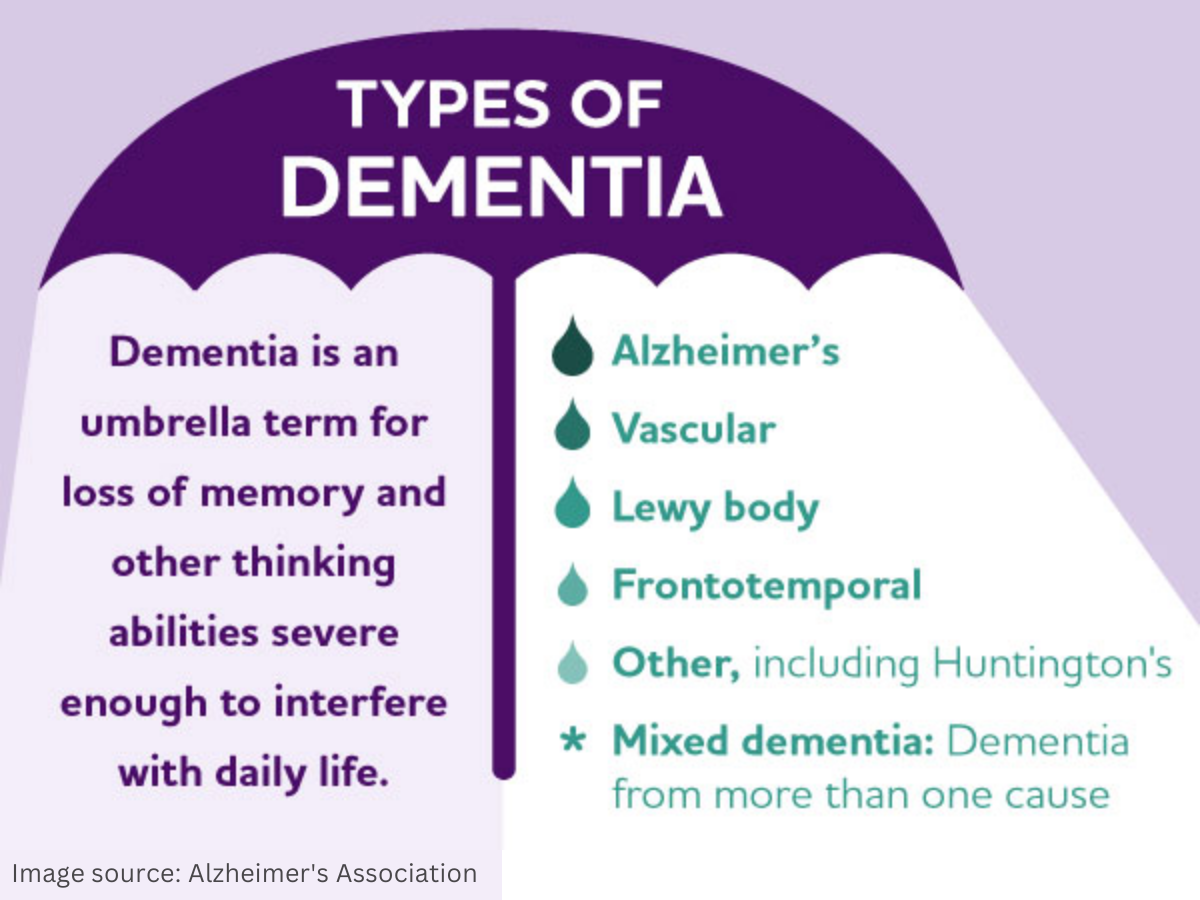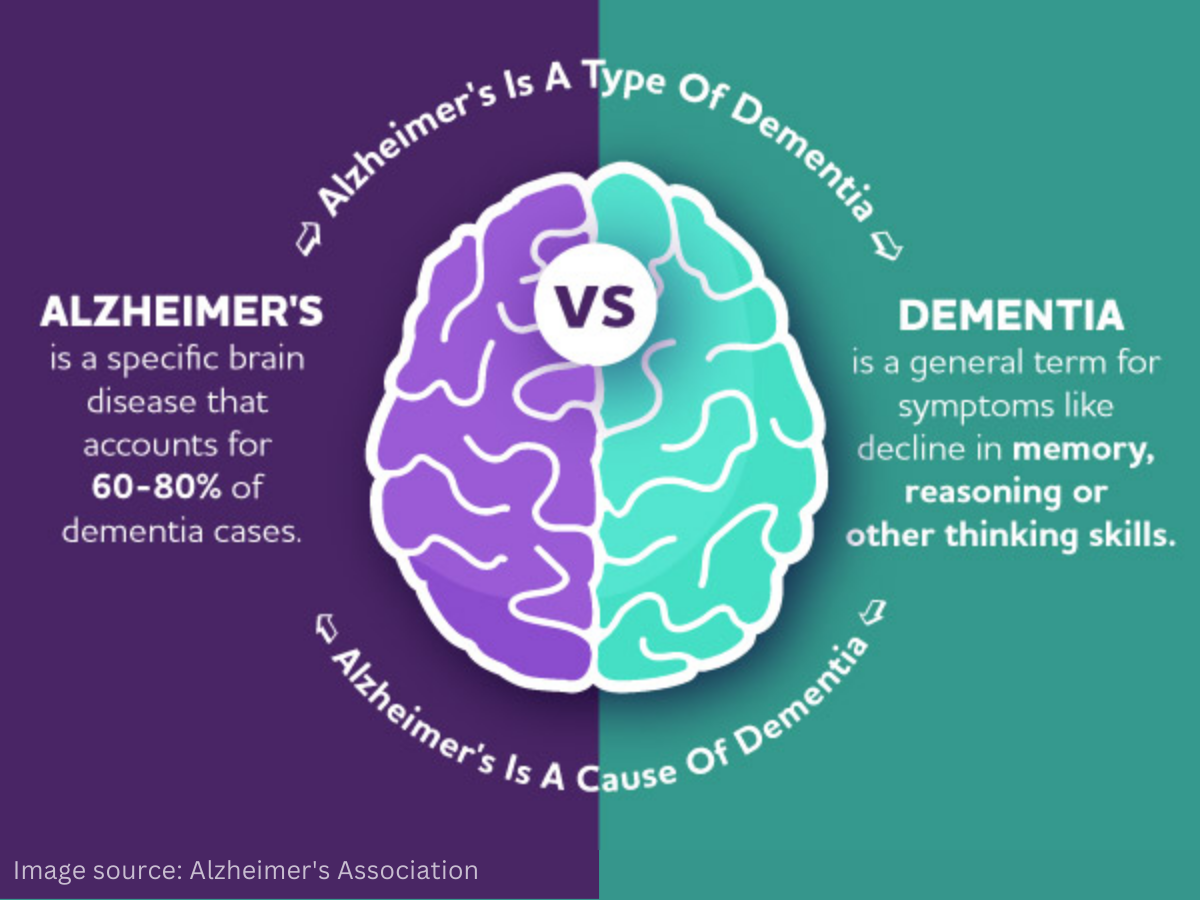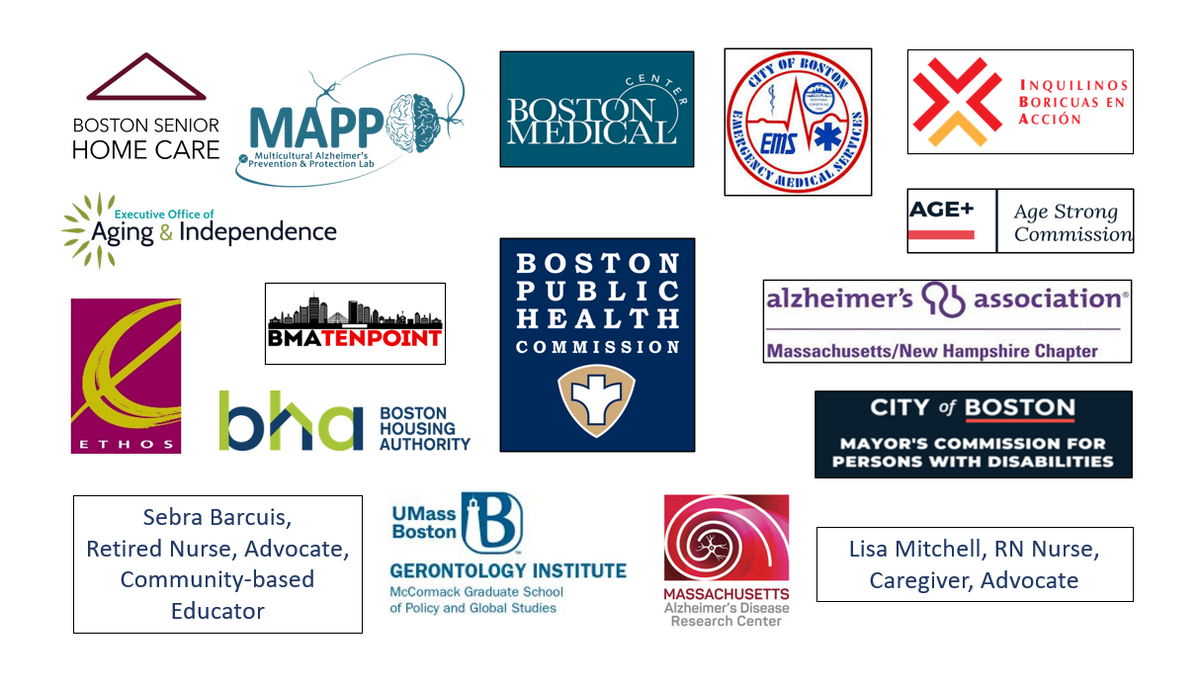Brain Health
We work with partners to develop plans, policies, and programs that promote brain health. Our goal is to support the brain health of our residents throughout their lives.
WHAT IS BRAIN HEALTH?
Brain health refers to how well a person’s brain functions in various ways. This includes:
- Cognitive health: how well you think, learn, and remember
- Motor function: how well you make and control body movements
- Emotional function: how well you understand and respond to emotions
- Tactile function: how well you feel and respond to pressure, pain, and temperature
Protect Your Brain Health
According to The Administration for Community Living (ACL), Good overall health may help to maintain good brain health. These tips may help you stay active and healthy, physically and mentally.
-
Get 7-8 hours of sleep every night
-
Eat or drink less sugar, salt, and solid fat
-
Eat more fruits, vegetables, and whole grains
-
Choose lean meats, fish, or poultry
-
Control portion sizes
-
Choose low- or non-fat dairy
- Drink adequate fluids
-
Make physical activity a part of your routine
-
Seek exercise guidance from a healthcare provider
-
Join programs that teach exercise safety
-
Volunteer or work
-
Join a social club or gather with friends
What is dementia?
Dementia is the loss of cognitive functioning that impacts daily life and activities. Cognitive functioning includes our thinking, remembering, and reasoning skills. It is normal to be a little forgetful as we age. But, difficulties with these skills could be signs of cognitive impairment such as dementia.
Dementia is the loss of cognitive functioning, such as thinking, remembering, and reasoning skills, to the point where it interferes with daily life and activities.
Symptoms of dementia include problems with language skills, visual perception, and paying attention. Some people have personality changes.
The most common type of dementia is Alzheimer's, but dementia also includes:
- Frontotemporal dementia,
- Lewy body dementia,
- Creutzfeldt-Jakob disease, and
- Dementias from more than one cause.
WHAT IS ALZHEIMER'S?
Alzheimer’s is a type of dementia involving parts of the brain that control thought, memory, and language. Most people who have dementia have Alzheimer's disease. Alzheimer’s starts with memory loss. The disease can make conversation, thinking clearly, and completing daily activities difficult. Alzheimer’s is a disease that gets worse with time.
More About Alzheimer's Disease
More About Alzheimer'sThere are 10 early warning signs and symptoms of Alzheimer's disease. If you or your loved one experiences any of these signs or symptoms, do not ignore them and contact your doctor.
- Memory loss that disrupts daily life
- Challenges in planning or solving problems
- Difficulty completing familiar tasks
- Confusion with time or place
- Trouble understanding visual images and spatial relationships
- New problems with words in speaking or writing
- Misplacing things and losing the ability to retrace steps
- Decreased or poor judgment
- Withdrawal from work or social activities
- Changes in mood and personality
This information is from the Alzheimer's Association. Click the button below to learn more from the Alzheimer's Association.
- Over 5.8 million Americans have Alzheimer’s disease.
- It is most common in African American, Black, and Hispanic populations.
- It is also more common in populations with chronic diseases. This includes diseases such as diabetes and hypertension.
- Alzheimer’s is most common in adults aged 65 or older, but it is also possible for the disease to impact young people.
There is not a single cause of Alzheimer's, but there are risk factors. You have an increased risk of getting Alzheimer's if someone in your family has the disease. Other risk factors include:
- Having certain chronic diseases, including diabetes and hypertension,
- Eating unhealthy foods,
- Lack of exercise,
- History of brain injuries, or
- Exposure to certain toxic chemicals, such as lead.
Exercising and eating a variety of fruits, vegetables, grains, and proteins can help lower the risk of Alzheimer's.
Frequently Asked Questions
FAQNormal aging might include occasional forgetfulness or slower thinking, but it doesn’t significantly interfere with daily life. Dementia, on the other hand, involves severe memory loss, confusion, and cognitive decline that affects daily activities and decision-making.
Remember to speak to your healthcare provider for a proper diagnosis.
While there is no guaranteed way to prevent dementia, certain lifestyle changes may help reduce the risk. These include maintaining a healthy diet, regular physical exercise, keeping mentally and socially active, managing cardiovascular health, avoiding smoking, and limiting alcohol consumption.
Receiving an Alzheimer's or Dementia diagnosis is life-changing. It is important to remember that individuals who have received this diagnosis are still valuable members of society. They deserve to be heard, included in conversations about medical decisions that affect them, and treated with respect.
We encourage you to speak to your primary care physician, a neurologist, or a specialist in memory disorders. Additionally, consider talking to a social worker, or a counselor, and joining support groups for people with dementia and their families to develop a community of support. It is important to connect with others to remind you that you are NOT alone!
It is important to note that certain lifestyle changes may help reduce the risk of Alzheimer’s or Dementia. These same changes can help you live well after a dementia diagnosis. These include maintaining a healthy diet, regular physical exercise, keeping mentally and socially active, managing cardiovascular health, avoiding smoking, and limiting alcohol consumption. Maintaining physical, emotional, psychological, social, and spiritual health provides many benefits that may help improve your daily life.
You can also contact the Alzheimer's Association 24/7 helpline at 800-272-3900. The helpline will connect you with a live person who can provide information, local resources, crisis assistance and emotional support. This includes Information about memory loss, medical care needs, including medication and treatment options, care planning, including finding quality care providers and etcetera.
Alzheimer's disease has no cure. There is no way of slowing down the progression of this disease, and no treatment is available to reverse the changes that the disease brings on however, there are treatments available that can help manage symptoms and improve the quality of life for individuals with Alzheimer’s or dementia. These include medications, cognitive therapies, lifestyle changes, and support services.
It is important to speak to your healthcare provider to determine the best treatment for you based on your age, health history, disease progression and personal preferences.
A caregiver provides care and support to someone who needs assistance due to illness, disability, or aging. This can include family members, friends, or professional caregivers.
A caregiver's duties/responsibilities to a care recipient can be direct/indirect. These may include but are not limited to domestic help like house chores, scheduling and following up on medical appointments, participating in financial decisions including incurring personal costs, scheduling transport, and helping with their daily care.
As a caregiver, it’s important to educate yourself about the condition, establish a routine, ensure a safe environment, provide emotional support, and seek out resources and support for yourself to manage the demands of caregiving. Caregiving can be very demanding so we encourage caregivers to learn stress-reduction techniques.
Start by learning as much as you can about the specific needs of the person you care for, and gather information about the condition. Reach out to healthcare professionals, develop a care plan, and learn about resources and services to assist you and the person you are caring for.
Also, consider joining caregiver support groups and developing a support network to help manage the caregiving responsibilities. The cost of caring for someone with Alzheimer's or Dementia is high. Consider meeting with a financial planner and a legal representative before or as soon as your care recipient is diagnosed.
Refer to the caregiver resources section on this page to learn about the resources available in Boston and Massachusetts. These include respite care programs, legal and financial planning programs, and the Alzheimer’s Association 24/7 Helpline.
You can seek help from elder law attorneys, financial planners specializing in elder care, and organizations like the Alzheimer's Association, which can provide resources and referrals for legal and financial planning.
You can find these facilities by contacting local aging services agencies, visiting the Eldercare Locator website, checking with the Alzheimer's Association, or asking for recommendations from healthcare providers. Visiting facilities and meeting with staff can also help you make an informed decision.
Boston BOLD Project
We launched the Boston BOLD Project with U.S. Centers for Disease Control and Prevention funds. In 2021, we received a two-year, $700,000 grant from the Centers' Healthy Brain Initiative. This grant allowed us to create a strategic plan to meet the needs of Boston residents living with, or at high risk of, developing Alzheimer's or dementia. This plan will also support caregivers. The plan uses insights from community stakeholders and our community needs assessment. In 2023, we received an additional five-year, $2.5 million grant from the Healthy Brain Initiative to continue to expand the Boston BOLD Project by implementing our strategic plan.
Boston BOLD Project Stakeholder Coalition
Boston BOLD Project Data and Planning
Data & PlanningHealth equity is a cross-cutting theme across all five priorities in the city's Alzheimer's and dementia strategic plan.
- Priority 1: Finding and Connecting to Support Services
- Priority 2: Care Partner Support
- Priority 3: Workforce/System Capacity
- Priority 4: Risk Reduction, Screening, and Diagnosis
- Priority 5: Surveillance Data Collection
Healthy Aging Resources
Boston Age Strong Commission
Facilitating full and equal participation in all aspects of life for adult residents in Boston
Boston Office of Food Justice
Connecting residents to food resources throughout the city and providing support to apply for available benefits
Mayor's Health Line
Providing residents with services like answering health insurance eligibility and enrollment questions, finding primary care providers, and other services
Central Boston Elder Services
Providing support and services to the elderly and disabled in need of human services
Ethos: Healthy Aging Classes
Evidence-based healthy aging workshops
Older Adult Fall Prevention
Falls are the leading cause of fatal and non-fatal injuries for older adults in the United States
BCYF Senior Programs
Community programs for Boston's older adult residents
Boston Home Center
Working with neighborhood agencies to assist seniors applying for minor or large home repairs
ESAC: Senior Home Repairs
Protecting health and safety for seniors while maintaining and improving quality of life through home repairs







